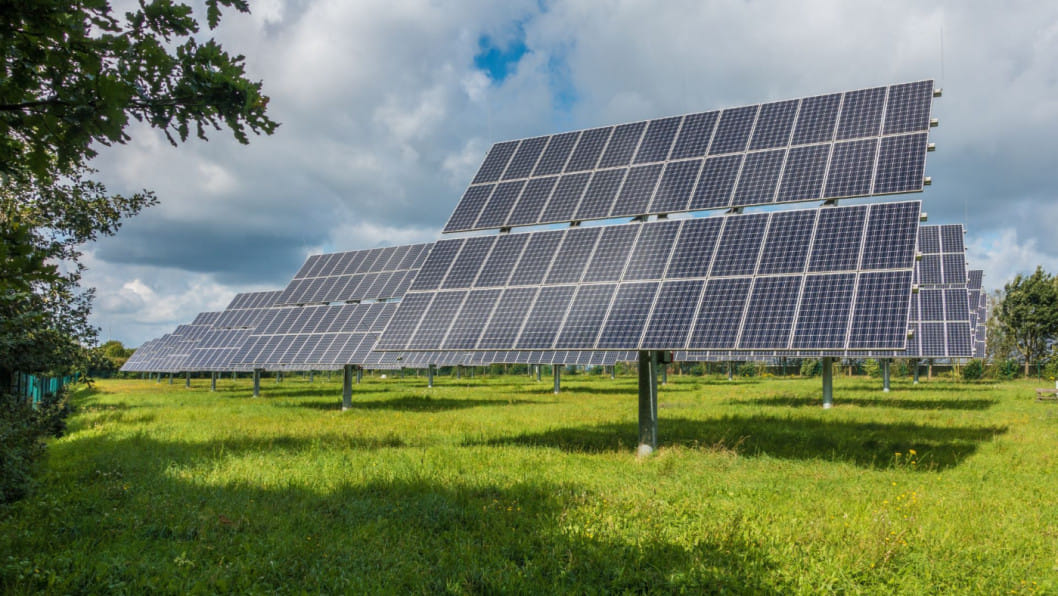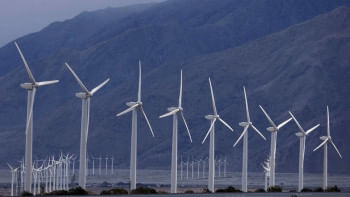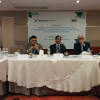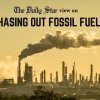Govt unveils new renewable energy policy

The government has updated the Renewable Energy Policy after 17 years, aiming to produce at least 20 percent of the national power demand from green sources by 2030.
The new policy offers a 10-year corporate tax exemption for all government and private renewable energy producers, followed by another five years of partial tax exemption.
The Renewable Energy Policy 2025 was uploaded on the power division's website today. It allows all types of customers—residential, industrial, and commercial—to set up renewable energy systems on rooftops, in yards or premises..
The power produced can be sold to government agencies or private entities, following the Net Metering Guidelines 2018, it said.
Currently, Bangladesh has a capacity of around 1,563 megawatts (MW) of grid and non-grid power from renewable energy, which is about 8 percent of the current demand and 5.6 percent of the country's total capacity of 27,426MW.
The government will encourage peer-to-peer (P2P) trade in renewable energy—a decentralized system that enables electricity consumers with solar panels or renewable systems to directly trade the excess electricity they generate with other consumers using distribution and transmission networks.
Electricity distribution companies will cover their commanding areas for electrification through solar mini, micro, nano, and pico grids or hybrid systems incorporating other renewable energy sources, where electrification by the national grid is not feasible, the policy said.
In addition, the private sector may install and operate solar- or RE-based mini, micro, nano, and pico grids on a competitive market basis, wherever applicable. The electricity distribution tariff will be determined by the Bangladesh Energy Regulatory Commission.
The Sustainable and Renewable Energy Development Authority (SREDA) will introduce a renewable purchase obligation—a regulatory mandate requiring all power utilities (government agencies involved in power production, transmission, and distribution), as well as other selected entities or consumers, to purchase a certain percentage of power from renewable sources.
A Renewable Energy Certificate will also be introduced. This will be a tradable certificate representing the environmental attributes of one megawatt-hour (MWh) of electricity generated from a renewable energy source.
The policy allows SREDA to act as a nodal agency under the power division, responsible for coordinating, managing, and overseeing all grid-connected and off-grid renewable projects.
"SREDA shall develop the renewable energy roadmap or implementation plan within a time frame based on this policy," it reads, adding that SREDA shall encourage and promote human resource development and local production of renewable energy equipment, and facilitate and monitor the quality of such equipment.
The agency will initiate the establishment of a national quality control and research laboratory for renewable energy equipment and infrastructure. Additionally, the policy states that equipment can also be tested in any accredited laboratory recognized by the Bangladesh Accreditation Board or in local laboratories enlisted by SREDA.
The policy aims to reduce electricity prices and government subsidies; harness the potential of renewable energy resources and promote related technologies; encourage local manufacturing of renewable energy equipment; and scale up renewable capacity to ensure energy security and reduce dependence on fossil fuels.
The policy defines renewable energy as "energy generated from natural resources that are constantly replenished, such as sunlight, wind, rain, tides, waves, geothermal heat, and other similar sources."
Other sources include geothermal energy, tidal energy, river currents, wave energy, green hydrogen, green bio-fuel, biomass, and waste-to-energy. It introduces 13 types of solar-based technology, including solar street lights, home systems, drinking water systems, rooftop solar, floating solar, and EV charging stations.
Coexistence of agriculture with renewable energy projects, such as agri-voltaic systems, will be encouraged to ensure food security alongside energy security. The policy adds that the government may allocate land—such as fallow land, government khas land, char areas, riversides, seashores, and hilly terrains—for renewable energy project development.
"Land having no agricultural value or other co-benefits will be prioritized in the land allotment process… Various organisations like Bangladesh Railway, Roads and Highways Department, Bangladesh Bridge Authority, BWDB, BIWTA, EPZ, EZ, BSCIC, etc., own large amounts of unused land or open spaces that can be effectively utilized for the development of renewable energy projects."

 For all latest news, follow The Daily Star's Google News channel.
For all latest news, follow The Daily Star's Google News channel. 









Comments